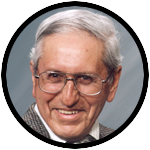
Moises Sandoval
As my birthday approaches — I am in my late 80s — I marvel at how long I have lived. When I saw my doctor last year for my annual physical exam, he said: “You are taking very good care of yourself. The rest is heredity.” I come from a family that lives long.
On my mother’s side, my grandfather Enrique lived to the age of 93. An uncle on my father’s side lived to 94. Several aunts and cousins lived past their 90th birthdays, my mother to 86. Three of my brothers are over 80 years old; another brother, 77; Celestino, a cousin, 85.
What’s more, we all still work: writing, teaching, beekeeping, dentistry and apostolic work. Work is good!
Our longevity is unusual — shall we say miraculous — given the conditions in which we lived, a rural farm society with none of the conveniences of the modern world. We had no electricity, motorized vehicles, indoor water or plumbing, central heating, access to modern medical and dental care, or even a dependable source of cash income. The farms produced only enough to supply our needs, if that.
[hotblock]
Our families lived in the foothills of the Sangre de Cristo Mountains in northern New Mexico. We farmed the dry soil of a region called the high desert and raised cattle, sheep, goats, pigs and chickens. In the fields, we cultivated corn, peas, wheat and oats. Next to our hand-dug wells, we had big gardens. My grandfather Octaviano also had an orchard with apple, plum and pear trees.
My father, the best gardener, cultivated cabbage, cucumbers, carrots, turnips, radishes and herbs. We nourished them with water drawn one bucket at a time from a 15-foot well with a rope on a pulley. In the fall, my father bartered some of the cabbage for apples that my mother canned in Mason jars.
Nevertheless, we suffered in the winter from lack of vegetables and fruit, especially citrus. Sometimes we could not afford to buy potatoes and had to substitute carrots preserved in a root cellar. Most often we had plenty of meat.
But there was a bitter winter when we ran out of meat. My father borrowed a rifle from one of my mother’s brothers, went into the forest and shot a big deer, which helped us survive. Yet, despite all the hardships, we were more secure than countless families in our crowded cities today.
Perhaps that is because life was simpler then. Families stayed together, communities were united and took care of those who suffered mishaps or hardships. What’s more, they were all bound together by a strong faith and religious practice. There was an integrity to life often missing in today’s world, a generosity of spirit that is rare, if not totally absent, in many of our leaders in Washington.
When I reflect on our long life, I am amazed that our diet always consisted of foods that in today’s supermarkets are always more expensive because they are organic and free of the hormones and other chemicals given to livestock or to the hens that provide our eggs.
Our pigs were fed the grain we grew on the farm. Our hens were free range, not kept in cages. Our breads were free of the sugars, corn syrup and preservatives that nutritionists tell us make them unhealthy. The air we breathed was unpolluted by the chemicals that often make urban life hazardous.
Finally there was the peace and confidence bred by self-sufficiency. There was always the sense that we could somehow cope, and, above all, the faith that God would not abandon us. Those were the good old days.
PREVIOUS: Discerning the call to a religious life
NEXT: Trump erred in hitting Syria without Congressional green light



Share this story